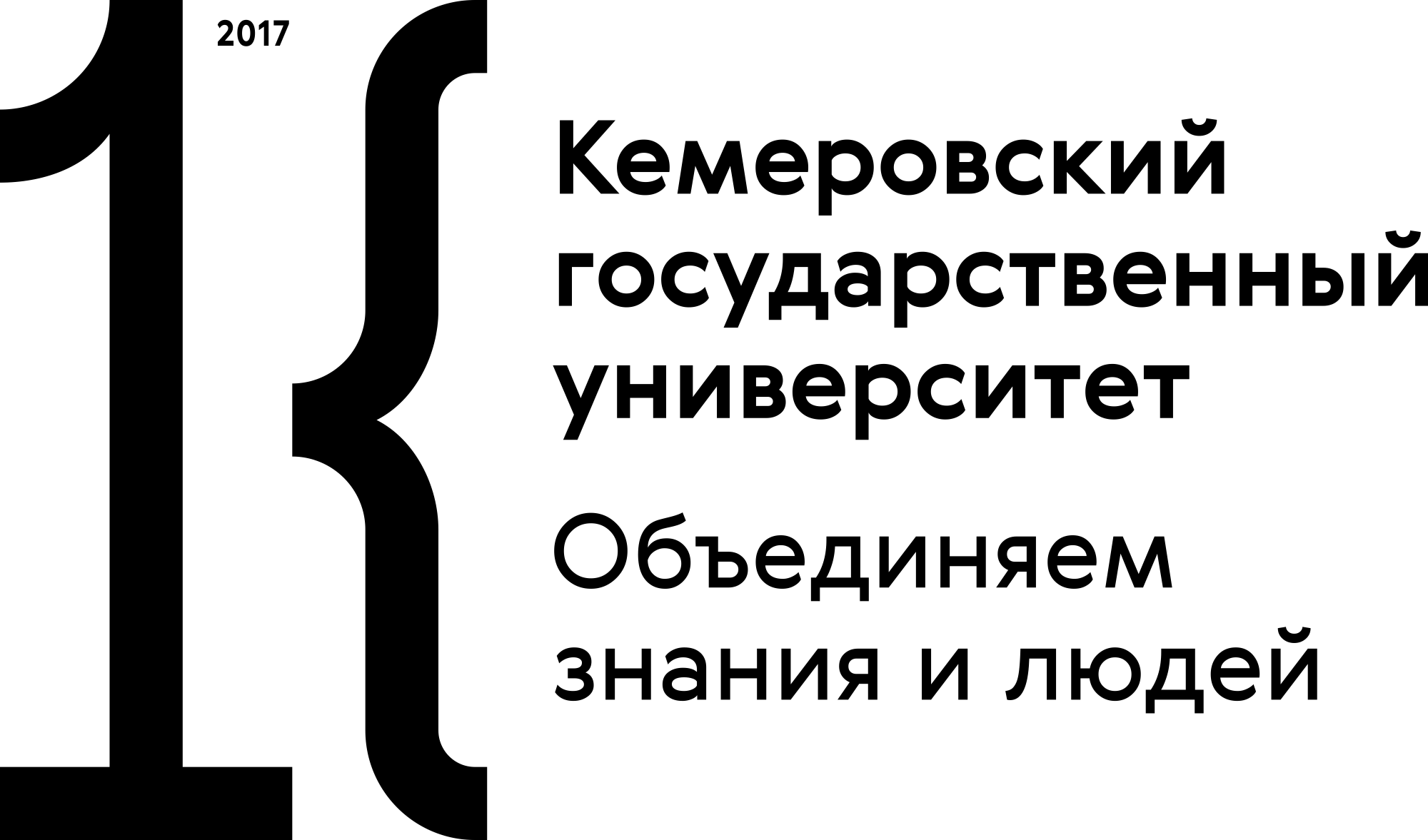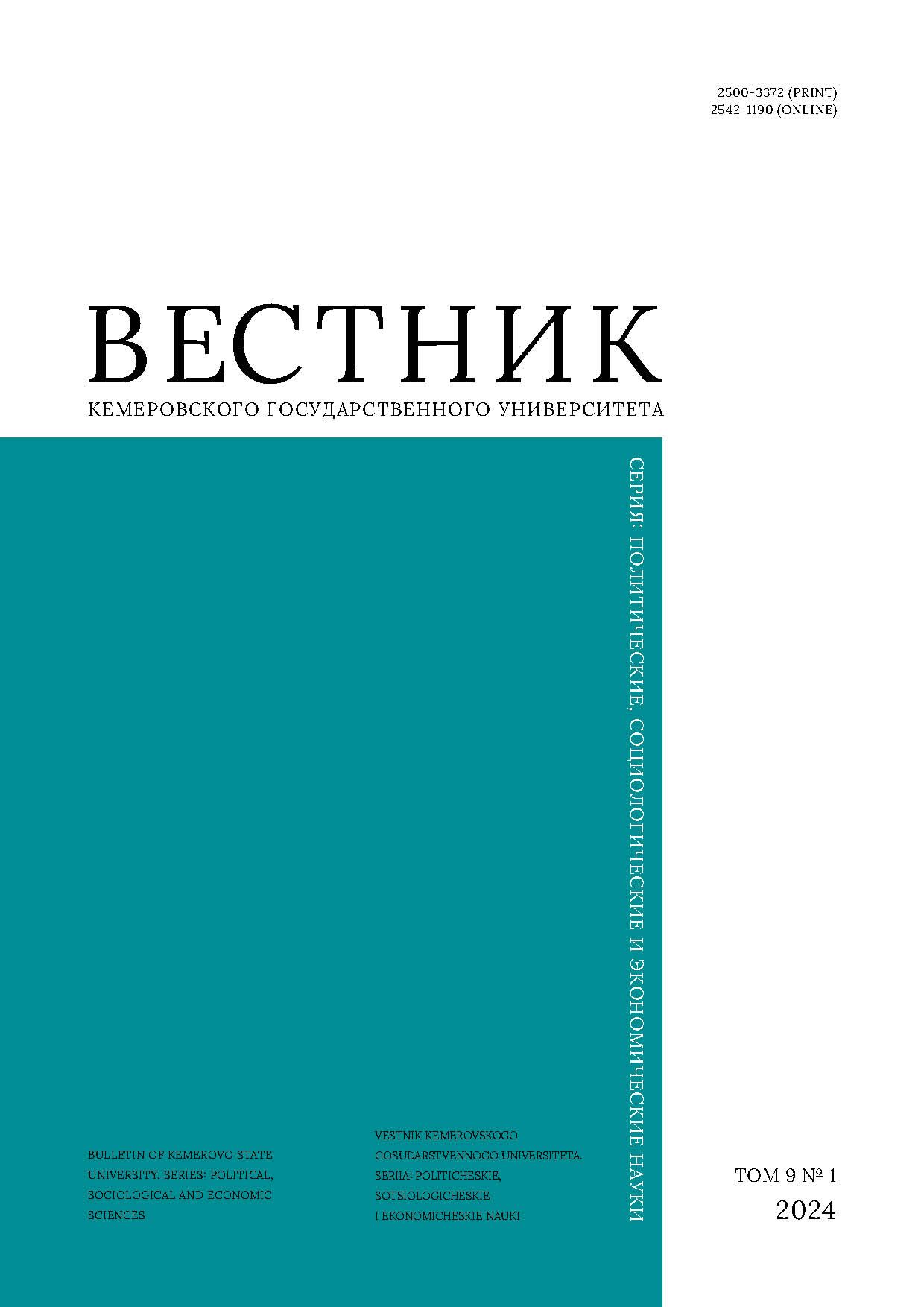Lipetsk, Lipetsk, Russian Federation
Lipetsk, Lipetsk, Russian Federation
Moscow, Moscow, Russian Federation
Lipetsk, Lipetsk, Russian Federation
The pandemic has created additional risks for achieving the socio-economic and environmental goals of sustainable development, has largely transformed consumer behavior and created prerequisites for an environmental agenda revision. The purpose of the study is to identify trends in sustainable development during the pandemic, to identify the features of their manifestation in Russian regions, as well as to justify the need for further stimulation of responsible consumption and production practices based on the environmental innovations’ potential. The objectives of the article include the research of sustainable development trends in the world and Russia during the pandemic, identification of risks to achieving socio-economic and environmental goals, disclosure of the sustainable development specifics in Russian regions during the pandemic, and the formation of recommendations aimed at achieving the goals of Russian regions’ sustainable development. It is determined that the pandemic period is characterized by a slowdown in economic growth and an increase of social and environmental tension, which creates risks for achieving sustainable development goals. Such trends are global in nature, and affect the Russian regions. The authors consider the vectors of consumer behavior patterns and organizations’ activities transformation during the pandemic, identify the key tasks for ensuring the Russian regions’ sustainable development at the stage of post-crisis recovery.
sustainable development, region, consumer behavior, responsible consumption, environmental innovations, pandemic, lean technologies
1. Karpunina E. K., Ruzhanskaya N. V., Podorova-Anikina O. N., Zubareva N. N., Luchaninov R. S. Transformation of consumer behavior during the COVID-19 pandemic. Geo-economy of the future, eds. Popkova E. G., Sergi B. S. Cham: Springer, 2022, 85-96. https://doi.org/10.1007/978-3-030-92303-7_10 EDN: https://elibrary.ru/ZCGAGA
2. Podorova-Anikina O. N., Karpunina E. K., Gukasyan Z. O., Nazarchuk N. P., Perekatieva T. A. E-commerce market: intensification of development during the pandemic. Imitation market modeling in digital economy: game theoretic approaches: Proc. Intern. Sci.-Prac. Conf., Ufa, 29-30 Oct 2020. Cham: Springer, 2022, 363-373. https://doi.org/10.1007/978-3-030-93244-2_40 EDN: https://elibrary.ru/ZWTXPX
3. Karpunina E. K. Paradigm of sustainable development in the digital economy. Rossiia: tendentsii i perspektivy razvitiia, 2020, (15-1): 25-34. (In Russ.)
4. Karpunina E. K., Podmolodina I. M., Averina O. I., Kuznetsov I. A., Solonina S. V. Moving towards "digit": via the management of economic security to ensure sustainable development. Digital future economic growth, social adaptation, and technological perspectives, eds. Kolmykova T., Kharchenko E. Cham: Springer, 2020, 81-93. https://doi.org/10.1007/978-3-030-39797-5_9 EDN: https://elibrary.ru/XWSOLC
5. Plyusnina O. V. Digital technology potential of economic recovery in post-COVID reality. Vestnik Tverskogo gosudarstvennogo universiteta. Seriia: Ekonomika i upravlenie, 2023, (1): 15-25. (In Russ.) https://doi.org/10.26456/2219-1453/2022.4.015-025 EDN: https://elibrary.ru/LXUCHX
6. Dubovitski A. A., Karpunina E. K., Klimentova E. A., Cheremisina N. V. Ecological and economic foundations of effective land use in agriculture: the implementation prospects of food security. Proceedings of the 33rd International Business Information Management Association (IBIMA) Conference, Granada, 10-11 Apr 2019. IBIMA, 2019, 2687-2693. EDN: https://elibrary.ru/ZPXBAS
7. Pilipchuk N. V., Korolyuk E. V., Farrakhova F. F., Galeev A. F. Specifics of development of Russian regions during the pandemic and post-pandemic recovery. Bulletin of the South Ural State University. Ser. Economics and Management, 2023, 17(2): 65-78. (In Russ.) https://doi.org/10.14529/em230205 EDN: https://elibrary.ru/WFSRYG
8. Prata J. C., Silva A. L., Walker T. R., Duarte A. C., Rocha-Santos T. COVID-19 pandemic repercussions on the use and management of plastics. Environmental Science & Technology, 2020, 54(13): 7760-7765. https://doi.org/10.1021/acs.est.0c02178
9. Bobylev S. N. New economic models and indicators of sustainable development. Economic Revival of Russia, 2019, (3): 23-29. (In Russ.) https://www.elibrary.ru/ldggke
10. Abramova A. V., Averchenkov A. A., Bobylev S. N., Danilov-Daniliyan V. I., Zakharov V. M., Kokorin A. O., Nikonorova E. V., Perelet R. A., Piskulova N. A., Ponizova O. A., Safonov G. V., Sik K. T. Sustainable development: new challenges. Moscow: Aspekt Press, 2015, 336. (In Russ.) https://www.elibrary.ru/zbgoyx
11. Bobylev S. N., Kiryushin P. A., Koshkina N. R. New priorities for the economy and green finance. Economic Revival of Russia, 2021, (1): 152-166. (In Russ.) https://doi.org/10.37930/1990-9780-2021-1-67-152-166 EDN: https://elibrary.ru/GESKXH
12. Hojnik J., Ruzzier M., Manolova T. Eco-innovation and firm efficiency: empirical evidence from Slovenia. Foresight and STI Governance, 2017, 11(3): 103-111. http://doi.org/10.17323/2500-2597.2017.3.103.111
13. Horbach J., Oltra V., Belin J. Determinants and specificities of eco-innovations compared to other innovations - an econometric analysis for the French and German industry based on the community innovation survey. Industry and Innovation, 20(6): 523-543. https://doi.org/10.1080/13662716.2013.833375
14. Govindan K., Diabat A., Madan Shankar K. Analyzing the drivers of green manufacturing with fuzzy approach. Journal of Cleaner Production, 2014, 96: 182-193. https://doi.org/10.1016/j.jclepro.2014.02.054
15. Treyman M. G. The use of environmental innovation in industrial enterprises as a promising direction of Russian economy development. Nauchnyi zhurnal NIU ITMO. Seriya: Ekonomika i ekologicheskii menedzhment, 2019, (2): 110-120. (In Russ.) https://doi.org/10.17586/2310-1172-2019-12-2-110-120 EDN: https://elibrary.ru/DQQHBX
16. Natalukha I. A. Modeling of economic instruments to stimulate investment in environmental innovations (a model for the development of environmental innovations). Economic Analysis: Theory and Practice, 2006, (24): 29-32. (In Russ.) https://www.elibrary.ru/hvicxn
17. Semikov V. L., Namestnikova O. V., Lomaev E. N., Ushakov V. D. Environmental innovations and safety. Tekhnologii tekhnosfernoi bezopasnosti, 2015, (5): 228-234. (In Russ.) https://www.elibrary.ru/wclcon
18. Rume T., Islam S. M. D.-U. Environmental effects of COVID-19 pandemic and potential strategies of sustainability. Heliyon, 2020, 6(9). https://doi.org/10.1016/j.heliyon.2020.e04965
19. Forster P. M., Forster H. I., Evans M. J., Gidden M. J., Jones C. D., Keller C. A., Lamboll R. D., Quéré C. L., Rogelj J., Rosen D., Schleussner C.-F., Richardson T. B., Smith C. J., Turnock S. T. Current and future global climate impacts resulting from COVID-19. Nature Climate Change, 2020, 10: 913-919. https://doi.org/10.1038/s41558-020-0883-0 EDN: https://elibrary.ru/UGPPTV
20. Aragaw T. A., Mekonnen B. A. Current plastics pollution threats due to COVID-19 and its possible mitigation techniques: a waste-to-energy conversion via Pyrolysis. Environmental Systems Research, 2021, 10. https://doi.org/10.1186/s40068-020-00217-x
21. Somani M., Srivastava A. N., Gummadivalli S. K., Sharma A. Indirect implications of COVID-19 towards sustainable environment: an investigation in Indian context. Bioresource Technology Reports, 2020, (11). https://doi.org/10.1016/j.biteb.2020.100491
22. Minakov I. A., Dubovitski A. A., Klimentova E. A., Kastornov N. P., Ermakov I. L., Azzheurova M. V., Sokolov O. V., Kulikov N. I., Kulikov A. N., Lantsev V. Y., Smykov R. A., Zhidkov S. A., Solopov V. A., Smagin B. I., Karpunina E. K., Korneva G. V., Kuvshinov V. A., Neuymin D. S. Development of agricultural industries in modern Russia. Michurinsk: Michurinsk SAU, 2023, 239. (In Russ.) https://www.elibrary.ru/cipwtv
23. Khashir B. O., Yakovleva E. A., Lubova T. N., Adlina T. V. Social and economic human well-being under the influence of environmental threats. Surgut State University Journal, 2023, 11(3): 82-95. (In Russ.) https://doi.org/10.35266/2312-3419-2023-3-82-95 EDN: https://elibrary.ru/BRRGVQ
24. Korovnikova N. A. Consumption changes in pandemic COVID-19 context. Social Novelties and Social Sciences, 2021, (3): 42-53. (In Russ.) https://doi.org/10.31249/snsn/2021.03.03 EDN: https://elibrary.ru/VWARRF
25. Sarkar A. N. Promoting eco-innovations to leverage sustainable development of eco-industry and green growth. European Journal of Sustainable Development, 2013, 2(1). https://doi.org/10.14207/ejsd.2013.v2n1p171
26. Rennings K., Zwick T. Employment impacts of cleaner production. Heidelberg, N.Y.: Physica, 2002, 322. https://doi.org/10.1007/978-3-642-57418-4
27. Averina O. I., Gridnev Yu. V., Lavrikova N. I., Smirnova E. V., Karpunina E. K. Sustainable development during the COVID-19 pandemic: opportunities for ecological innovation in Russian regions. Innovation management and information technology impact on global economy in the era of pandemic: Proc. 37th Intern. Business Information Management Association Conf., Cordoba, 1-2 Apr 2021. Cordoba: IBIMA, 2021, 1118-1129.
28. Mityakov S. N., Mityakova O. I., Mityakov E. S., Alenkova I. V. Innovative development of the regions of Russia: environmental innovations. Innovation, 2018, (3): 72-78. (In Russ.) https://elibrary.ru/vacehn
29. Sheth J. Impact of COVID-19 on consumer behavior: will the old habits return or die? Journal of Business Research, 2020, (117): 280-283. https://doi.org/10.1016/j.jbusres.2020.05.059
30. Di Crosta A., Ceccato I., Marchetti D., La Malva P., Maiella R., Cannito L., Cipi M., Mammarella N., Palumbo R., Verrocchio M. C., Palumbo R., Di Domenico A. Psychological factors and consumer behavior during the COVID-19 pandemic. PLoS ONE, 2021, 16(8). https://doi.org/10.1371/journal.pone.0256095
31. Yang Y., Li O., Peng X., Wang L. Consumption trends during the COVID-19 crisis: how awe, coping, and social norms drive utilitarian purchases. Frontiers in Psychology, 2020, (11): 1-10. https://doi.org/10.3389/fpsyg.2020.588580 DOI: https://doi.org/10.3389/fpsyg.2020.01011; EDN: https://elibrary.ru/MIJWRT
32. Kaplan R. S., Norton D. P. The balanced scorecard. Translating strategy into action. 2nd ed. Moscow: Olimp-Biznes, 2004, 320. (In Russ.) EDN: https://elibrary.ru/QQDUUT
33. Maksimov Yu. M., Mityakov S. N., Mityakov E. S. The system of indicators of sustainable development in the region. Economy of Regions, 2011, (2): 227-231. (In Russ.) https://www.elibrary.ru/nuqzuz
34. Mejokh Z. P., Korolyuk E. V., Sozaeva D. A., Pilipchuk N. V., Karpunina E. K. Economic security of Russian regions: risk factors and consequences of the COVID-19 pandemic. Proc. 36th Intern. Business Information Management Association Conf., Granada, 4-5 Nov 2020. IBIMA, 2020, 8197-8205. https://www.elibrary.ru/ijnevm
35. Bratchenko S. A. Lean production in Russia: theory and practice. Lomonosov Economics Journal, 2018, (3): 146-158. (In Russ.) https://www.elibrary.ru/ovqxev
36. Demirbas D., Holleville L., Bennett D. Evaluation and comparison of lean manufacturing practices in Britain and France: a case study of a printing solutions organization. Journal of Economy Culture and Society, 2018, (57): 93-150. http://dx.doi.org/10.26650/JECS422720

















